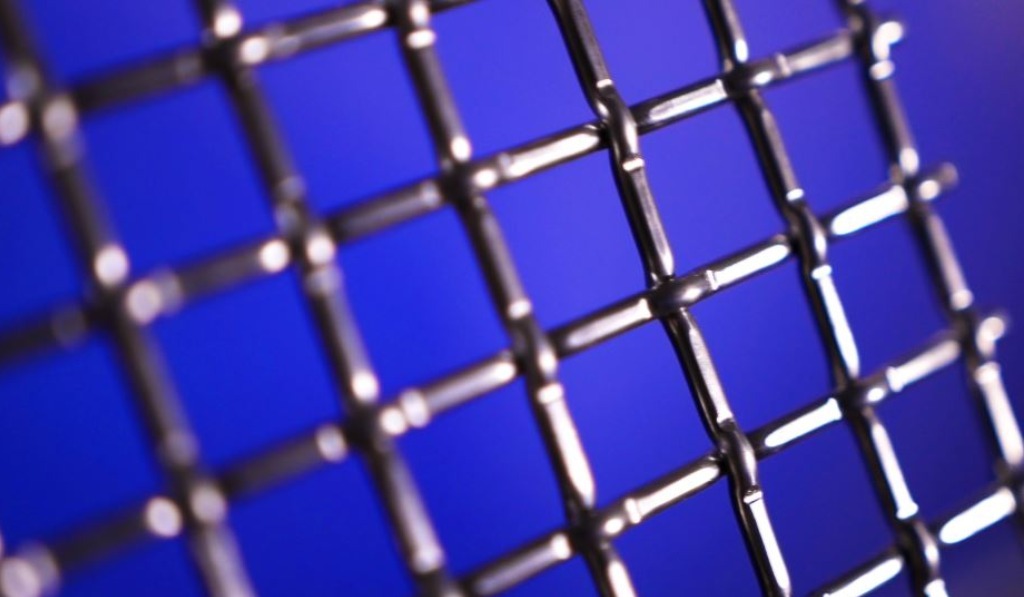Quality Control and Its Role in Chromatography Performance
When it comes to chromatography, even the smallest inconsistency can throw off an entire process. If you’re ever struggled with erratic separations, unexpected pressure spikes, or variability between runs, the issue might not be your chemistry or equipment, it could be your wire mesh.
Low-quality or inconsistent wire mesh can lead to performance issues that are both frustrating and costly to resolve.
Fortunately, choosing a wire mesh provider that prioritizes rigorous quality control can eliminate many of these variables from your process. From the raw materials to the final inspection, a controlled approach to mesh production ensures that every roll meets the tight tolerances chromatography systems demand.
At W.S. Tyler, we’re committed to making the world cleaner and safer through high-precision wire mesh solutions backed by over 150 years of filtration expertise. Our quality-first approach is designed to give chromatography professionals confidence in every layer of their separation system, because consistency starts with the materials you trust most.
In this article, we’ll explore how wire mesh quality impacts chromatography performance, what makes W.S. Tyler’s quality control process unique, and why consistency in mesh construction is key to repeatable, reliable results.
The Risks of Inconsistent or Low-Quality Wire Mesh
In chromatography, success depends on the control of flow, pressure, temperature, and retention. But one variable that often gets overlooked is the quality of the wire mesh used to support the separation media.
When mesh is inconsistent or poorly manufactured, it can introduce subtle but impactful issues that ripple through the entire process.
A common problem is uneven pore size or irregular weave patterns. These inconsistencies can lead to non-uniform flow paths, creating areas of channeling or dead volume inside the column.

The result? Reduced separation resolution, distorted peaks, and unreliable data.
Low-quality mesh may also lack the structural integrity needed to hold up under high-pressure conditions or repeated solvent exposure. Over time, this can cause mesh deformation, media migration, or even premature failure of the column, none of which are acceptable in regulated or high-stakes environments.
These issues don’t just affect performance. They can lead to costly downtime, batch failures, and increased maintenance efforts. This is all caused by a component that should be helping your system run more smoothly, not working against it.
Understanding these risks is the first step. The next is knowing how the right mesh, and the right quality process, can help you avoid them entirely.
What Sets W.S. Tyler’s Quality Control Process Apart
At W.S. Tyler, quality isn’t just a box to check; it’s a process woven into every layer of our manufacturing and inspection workflow. When your chromatography results depend on wire mesh that performs the same way run after run, traceable, consistent production is non-negotiable.
What sets us apart starts at the source. We carefully select raw materials for strength, stability, and chemical resistance. Every wire is measured, tensioned, and woven to exacting specifications using equipment designed for high-precision manufacturing.
But it doesn't stop at production. Each mesh roll undergoes rigorous inspection procedures to ensure consistency in pore size, mesh count, open area, and weave integrity. We employ advanced systems and mechanical testing methods to detect even the smallest deviation, well before your mesh ever reaches your column.
And because regulated environments demand complete confidence, we maintain full traceability on our wire mesh. From raw wire to finished roll, you get documented proof of quality and origin, giving your team and your auditors peace of mind.
This level of quality control means fewer surprises, better process repeatability, and fewer downstream issues. In chromatography, that’s the difference between good data and data you can trust.
Want to learn more about how to make the right choices in chromatography with your wire mesh selections? Learn more in our buyer’s guide below:
How Mesh Consistency Drives Repeatable Chromatographic Results
Consistency is at the heart of chromatography success. If your mesh varies from one column to the next (even slightly), it can lead to flow irregularities, shifts in retention time, or even media displacement that throws off your entire analysis.
That’s why consistent mesh structure matters. The weave pattern, pore size, and material thickness must remain uniform to ensure repeatable flow paths and separation profiles. Even a subtle variation can alter how the mobile phase interacts with the stationary phase, making it difficult to trust the results.
A precision-driven quality control process ensures that every roll of mesh meets the highest standards. This consistency isn’t just about meeting a spec, it’s about enabling reproducibility. When you’re working in a regulated or high-throughput environment, the ability to produce reliable results across multiple runs, instruments, or facilities is invaluable.
Mesh that performs predictably reduces troubleshooting, limits downtime, and boosts your team’s confidence in the data you’re generating. Whether you’re scaling a validated process or fine-tuning a new one, uniformity in the filtration media creates the stability chromatography systems need to perform at their best.
The Long-Term Impact of Reliable Wire Mesh in Chromatography
In chromatography, small details often make the biggest difference, and wire mesh is no exception. When your mesh is manufactured with strict quality controls, it helps ensure consistent separations, minimizes variability, and safeguards the long-term integrity of your processes.
If you’re looking to improve system repeatability, reduce costly rework, or simply gain more confidence in your chromatography results, it starts with better materials.
At W.S. Tyler, we’ve built our reputation on delivering wire mesh solutions that meet the highest standards of precision and reliability. Our quality control process is more than a checklist, it’s a promise that every roll of mesh you receive is engineered for performance and backed by over 150 years of filtration expertise.
Wondering more about materials you can use for your chromatography systems? Learn about it by reading our article below:
About Dylan Polz
Dylan is a Content Writer with 2 years of experience in marketing and SEO. Passionate about learning and strengthening his writing skills, he is currently expanding his expertise in particle analysis and woven wire mesh technologies. With a strong belief in the power of information to drive positive change, his goal is to develop content that supports cleaner, safer solutions across all industries.



